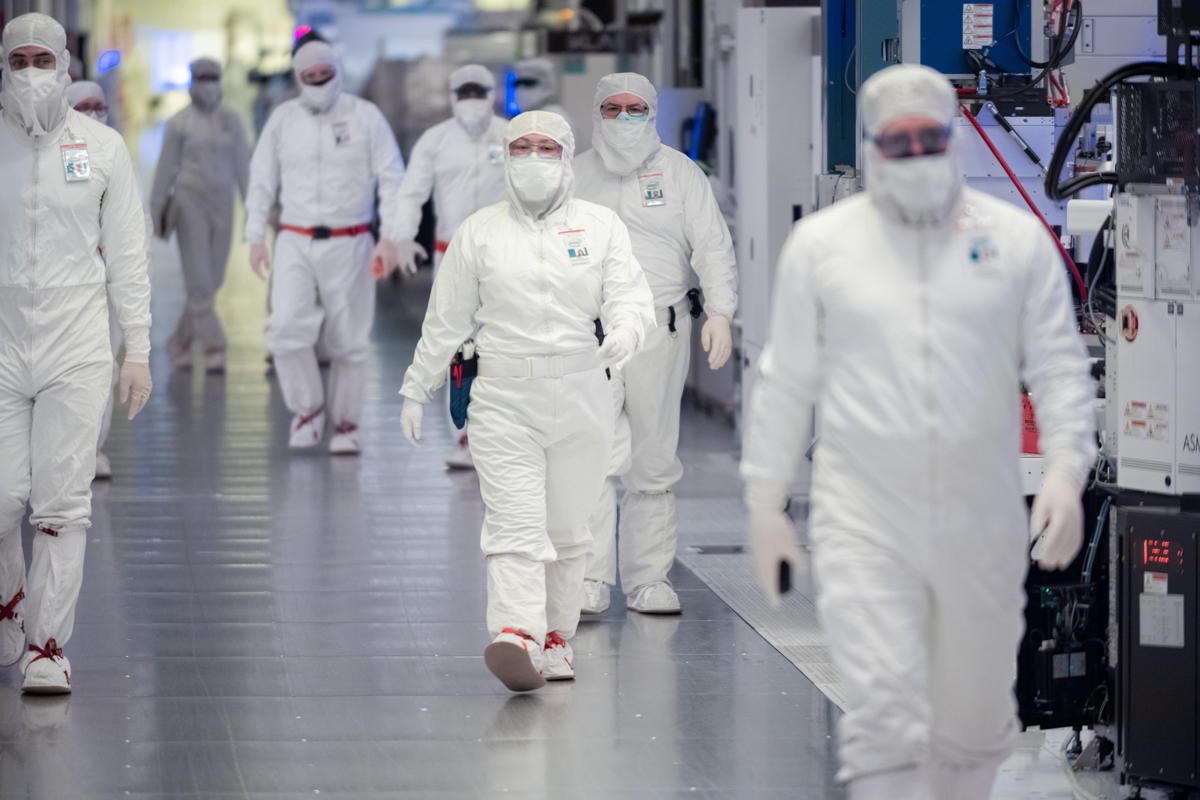

Image credit: Intel
China’s production of integrated circuits (ICs) grew 8.7 percent year-on-year to 37.6 billion units in November, according to a domestic agency, falling to the single digits for the first time this year amidst tightening restrictions from the US.
Total IC production for the first 11 months of the year rose 23.1 percent year-on-year to 395.3 billion units, as overall value-added industrial output rose 5.4 percent, the country’s National Bureau of Statistics (NBS) said.
China’s IC output saw strong demand from industrial robotics, which grew 29.3 percent year-on-year in November, and electric vehicle chips, which grew 51.1 percent, the NBS said.
IC exports grew 11.4 percent to 271.6 billion units in the 11-month period, with the main destinations being Hong Kong, South Korea, Taiwan, Vietnam and Malaysia, according to customs data.
Exports during the period were valued at nearly $145 billion (£114bn), up 18.8 percent from a year earlier.
“While restrictions impact advanced processes, the integration of China’s semiconductor supply chain with the global market remains deeply entrenched, and dramatic changes are unlikely in the near term,” said Han Xiaomin, general manager of domestic industry research firm JW Insights.
China imported 501.47 billion ICs this year through November, up 14.8 percent year-on-year, with a value of $349bn, as mainland companies stockpile US chips ahead of sanctions.
China’s IC production is largely in the area of legacy, or older-model chips, an area that the outgoing Biden administration has been targeting for new controls.
While most US restrictions so far have been aimed at preventing China from developing high-end processors such as AI chips, the Biden administration is also concerned that low-priced legacy chips from China could put rivals out of business, increasing US dependence on China in the supply chain, The New York Times reported on Monday.
China is projected to add almost half of the world’s new factory capacity for legacy chips in the next three to five years, according to US government statistics cited in the report.
This could drive down global prices and make competition difficult, similar to the situation in the solar, battery and electric vehicle markets, the administration fears.
The Biden administration’s investigation could result in tariffs, import bans or other action, but the decision on what action to take would be with the incoming Trump administration, the report said, citing government and industry documents and people familiar with the matter.
The latest round of US export restrictions introduced this month includes controls on chipmaking equipment and software, with 140 chip-related Chinese companies added to a trade blacklist.
China in response launched an antitrust probe into AI chip leader Nvidia.
Elon Musk sells social media platform X to his AI start-up xAI in a move…
TikTok opens e-commerce shopping in Germany, France, Italy as US future remains uncertain over divest-or-ban…
Discover expert insights on overcoming digital transformation challenges. Learn how to manage change, balance innovation,…
Microsoft drops data centre projects amounting to 2 gigawatts of power consumption as investors question…
SMIC sees revenues rise 27 percent for 2024, but profits fall nearly 50 percent amidst…
Google reassures developers Android to remain open source as it brings development entirely in-house, reduces…